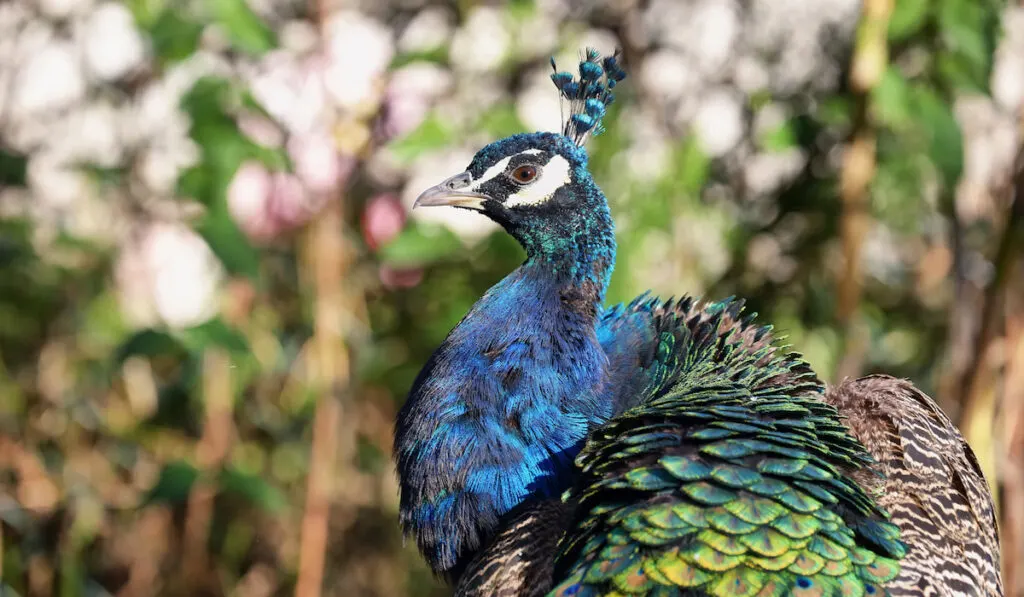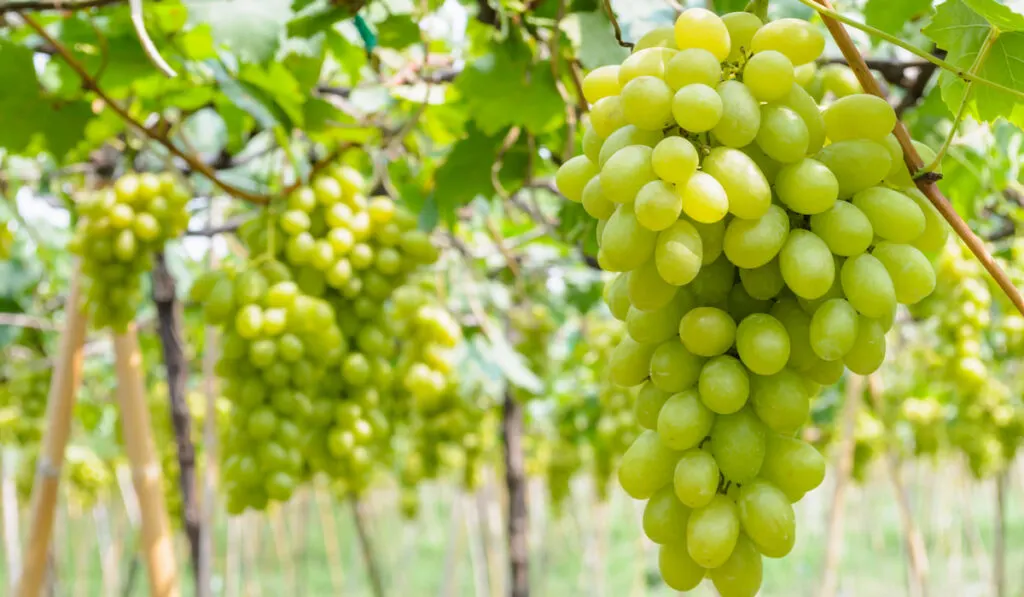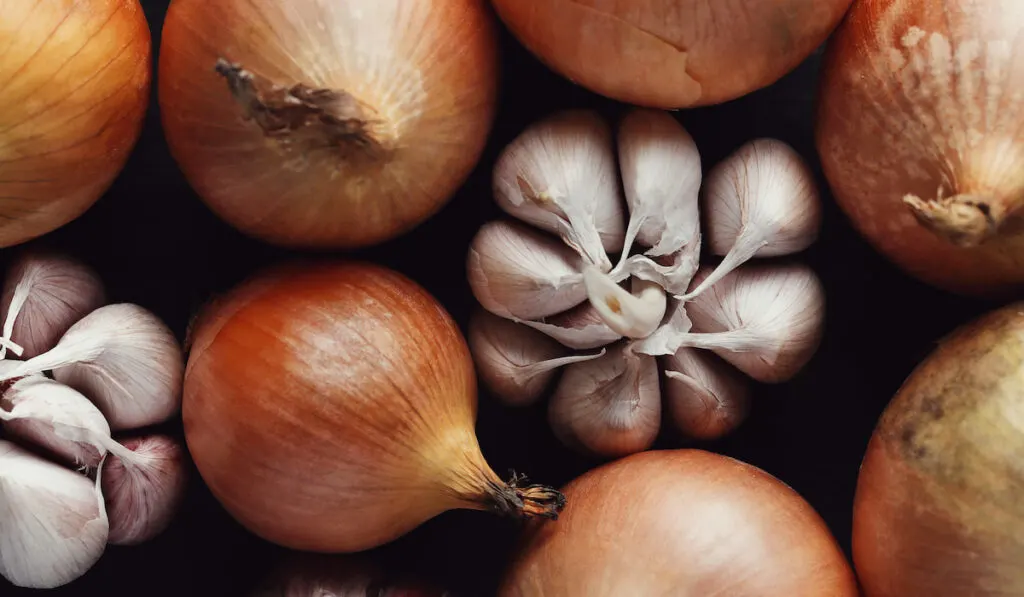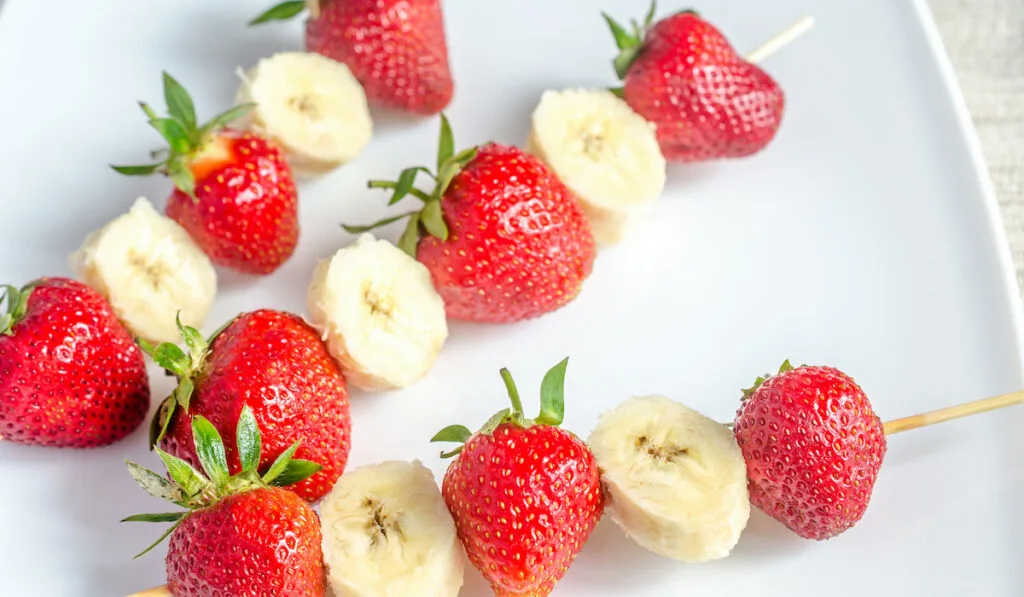When trying a new type of food with your peacocks, it is safer to ask questions than assume that the new food is harmless. So, if you intend to give grapes to your peafowls for the first time, you should ask, if peacocks can eat grapes.
Can peacocks eat grapes?
Peacocks can safely eat grapes. Since they are omnivores, peafowls have a digestive system that can tolerate both plant and animal matter.
Grapes are plant matter, and they are non-toxic to peacocks, so it stands to reason that they can be safely consumed by peacocks. Besides being safe, grapes are nutritionally beneficial to peafowls, too.
You might be wondering what nutritional benefits grapes can offer to peacocks. Look no further as we discuss those benefits and much more in the rest of this article.

Table of Contents
Peacocks’ Natural Diet
Peacocks can eat grapes. Their typical diet in the wild includes fruits, insects, small animals, vegetables, and seeds. And of the many fruits peacocks get to choose from, grapes are one of the favorites.
Since peacocks eat grapes in the wild and grapes are generally safe for birds, it is not out of place for peacocks to eat grapes.
Besides being safe, grapes are packed with nutrients that can improve the health of peafowls. Also, their size and shape are optimized for easy swallowing by peafowls.
While grapes are great for peacocks, you should only feed grapes to them in moderation. Peafowls need at least 20% protein in their diet, and grapes cannot offer this. So, excessive consumption of grapes in peafowls may cause an imbalance in their diet.
Grapes get sweeter as they ripen. However, birds do not tolerate high amounts of sugar well. So, when giving your peacocks ripe grapes, moderation is also vital.
In other words, as grapes become riper, the amount you give your peafowls should reduce.
If you are getting grapes from the store, ensure you wash them thoroughly before giving them to your birds. Washing the grapes will remove dirt and chemicals that can harm your peafowls.
Can Peacocks Eat Unripe Grapes?
Birds are known to go after grapes on the vine just before they become ripe. Of course, since peacocks do not really fly, they are unlikely to reach unripe grapes on the vine.
Nonetheless, most omnivorous birds have a similar digestive system, so peacocks should have no problem eating unripe grapes if provided for them.
Unripe grapes are relatively less sweet than ripe grapes. They are more tart than sweet. So, if your peafowls are used to ripe grapes, they may respond to unripe grapes differently.
Can Peacocks Eat Grape Seeds?
Peafowls can eat grape seeds. Some sources believe that grapes that come with seeds are a choking hazard. So, you may opt for seedless grapes for your peacocks while getting grape seeds separately.

Health Benefits of Grapes to Peacocks
While most of the mass of grapes is water, they are not devoid of other nutrients. Grapes offer nutrients like protein, potassium, magnesium, fiber, phosphorus, and folate to peacocks.
Protein
When in captivity, peacocks need no less than 20% protein to thrive. While grapes cannot offer that much protein, they can contribute to the overall protein consumption of your peafowls.
Protein promotes the growth and maintenance of feathers, claws, and beaks in peacocks. It is also necessary for the overall development of peacocks.
Fiber
While the quantity is limited, grapes do contain fibers. Grape fiber can contribute to gut filling, gut movement, and overall digestive health in peacocks.
Potassium
Potassium is perhaps the most abundant mineral in grapes. Since potassium helps with muscle and nerve function, it is pretty beneficial to peacocks. That aside, it promotes metabolism, fights stress, and helps with electrolyte balance.
Magnesium
Grapes contain some level of magnesium. Magnesium helps with metabolism and can increase energy levels in peacocks. Besides that, it can promote heart health.
Phosphorus
Alongside calcium, phosphorus is vital to proper bone development. So, you can expect the phosphorus content of grapes to contribute to bone development in your peacocks.
Folate
Peacocks can get some folate from eating grapes.
Folate can help promote the development of reproductive organs in peacocks. It also aids blood formation and helps with the development of the immune system.
As you may have noticed, many of the nutrients discussed above are not available in sufficient amounts.
This is why you should give grapes to peacocks in moderate to minimal amounts. Give them too many grapes, and they may be too full to eat other types of foods.
Consequently, they may miss out on the vital nutrients in those food items.
How Many Grapes Should I Feed My Peacocks?
You can give your peacocks 1 to 2 grapes weekly or twice a week. You may offer them the grapes whole, or you may chop the grapes into bite sizes. Of both options, chopping the grapes seems better because it reduces the chances of choking.
Avoid giving them grapes on consecutive days. As we said before, grapes are pretty sweet, so you do not want your peacocks eating them too frequently.

What Should You Not Feed Peacocks?
The following food items are generally unsafe for birds, so you should not feed them to your peacocks:
- Alcohol
- Apple Seeds
- Apricot Pits
- Avocado
- Bread
- Caffeine
- Candy
- Cherry Pits
- Chips
- Chocolate
- Cookie
- Fava beans
- Garlic
- Mushroom
- Nectarine Pits
- Onions
- Peach Pits
- Pear Seeds
- Plum Pits
- Processed meat
- Rhubarb leaves and stalk
- Salt
- Tomato leaves

Other Fruits Peacocks Can Eat
- Seedless Apples
- Bananas
- Blackberries
- Blueberries
- Pitless Cherries
- Huckleberries
- Mango
- Muscadines
- Oranges
- Papayas
- Strawberries
- Tomatoes
- Watermelons
Final Thoughts
In moderate to minimal amounts, grapes are safe for peacocks.
Not only can peacocks eat the fleshy part of grapes, but they can also eat the seeds. Peacocks may also eat near-ripe grapes since birds typically go after them on vines.
Whatever you do, always ensure you wash grapes thoroughly before offering them to your peafowls, especially when you suspect that they contain chemicals.
Resources
- https://feedingnature.com/what-do-peacocks-eat
- https://zupreem.com/avian/toxic-foods-your-bird-should-never-eat
- https://homeguides.sfgate.com/grapes-less-sour-ripen
- https://vetexplainspets.com/can-birds-eat-grapes
- https://arborgate.com/blog/garden/how-do-i-keep-the-birds-out-of-my-grapes
- https://kylonpowell.com/what-do-peacocks-eat
- https://www.medicalnewstoday.com/articles/271156#nutrition
- https://farmingmethod.com/what-do-peacocks-eat-drinks
- https://www.farmhealthonline.com/disease-management/poultry-diseases/ca-and-p-deficiency
- https://veteriankey.com/avian-nutrition
